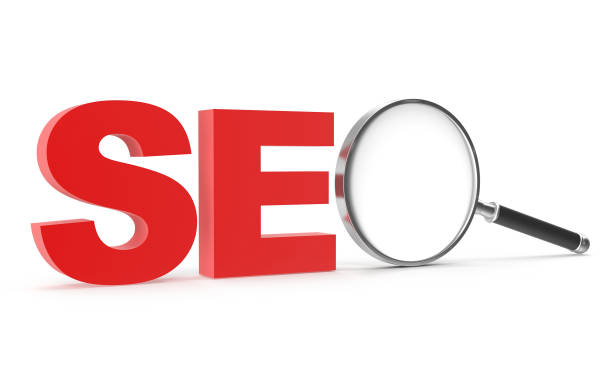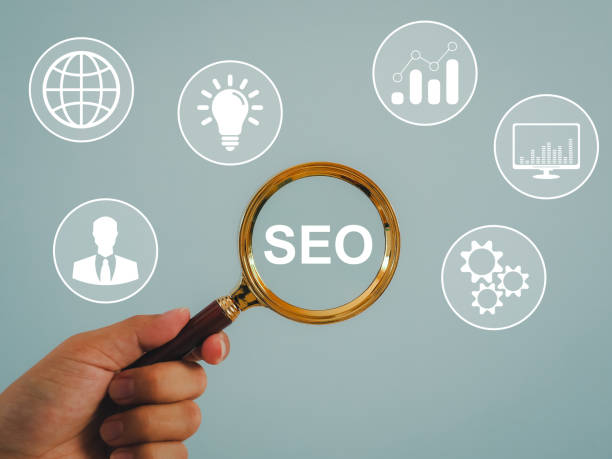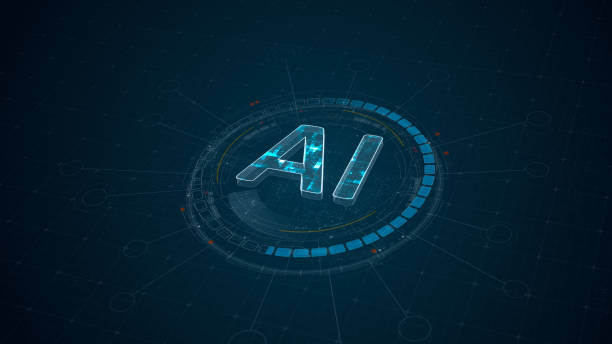What is Off-Page SEO and why is it important?

What is Off-Page SEO and why is it important?
#Off-Page SEO, also known as Off-Page SEO, is a set of techniques and activities performed outside your website to improve your website’s ranking in search engine results (#SERP).
Unlike #On-Page SEO, which focuses on optimizing your website’s content and structure, Off-Page SEO focuses on increasing your website’s credibility and reputation in the online space.
Off-Page SEO is important for several reasons:
- Increased Credibility: Search engines like Google consider websites that receive links from other reputable sources as more credible and trustworthy websites.
For more information, you can refer to the Wikipedia page. - Improved Ranking: The more credible your website is, the more likely you are to achieve a higher ranking in search results.
A higher ranking means more traffic and, consequently, more opportunities for your business. - Increased Traffic: Off-Page SEO not only helps improve your ranking but can also drive direct traffic to your website through links you receive from other websites.
- Branding: Active online presence and receiving links from reputable websites help in brand recognition and increasing audience awareness of your business.
In summary, Off-Page SEO plays a very important role in the online success of your business and should not be overlooked.
Off-Page SEO strategies can increase your website’s visibility and help attract new customers.
Optimizing Off-Page SEO is one of the most important aspects of digital marketing.
#Off_Page_SEO
Does your current corporate website present a worthy image of your brand and attract new customers?
If not, turn this challenge into an opportunity with Rasaweb’s professional corporate website design services.
✅ Significantly improves your brand’s credibility and image.
✅ Paves the way for attracting new leads and customers.
⚡ For free and expert consultation, contact Rasaweb now!
Link Building and its Importance in Off-Page SEO

Link Building and its Importance in Off-Page SEO
Link building is one of the most important and influential factors in #Off-Page SEO.
Simply put, link building is the process of acquiring links from other websites to your website.
These links show search engines that your website is credible and valuable, and has been endorsed by others as a useful source of information.
There are different types of links, but generally, they can be divided into two main categories:
- Follow Links: These links allow search engines to pass their authority to your website.
Follow links have a direct impact on your website’s ranking. - Nofollow Links: These links tell search engines not to pass their authority to your website.
Although nofollow links do not have a direct impact on your ranking, they can still drive traffic to your website and help with brand recognition.
The quality of links is far more important than their quantity.
Links received from reputable, relevant, and high-ranking websites have a much greater impact than links received from low-quality and irrelevant websites. A correct link-building strategy is the core of a successful #Off-Page SEO program.
To acquire high-quality links, you can use various methods, including:
- Creating high-quality and valuable content: Engaging and useful content increases the likelihood that others will link to it.
- Link exchange: Exchange links with other websites in your industry.
- Participating in events and conferences: By participating in events and conferences, you can connect with other people and businesses and create new link-building opportunities.
- Social media activity: By sharing your content on social media, you can drive traffic to your website and increase the likelihood of receiving links from other websites.
Link building is a time-consuming and continuous process, but with effort and perseverance, you can acquire high-quality links and improve your website’s ranking in search results.
Different Link Building Methods: Practical Strategies

Different Link Building Methods: Practical Strategies
Effective link building requires a well-thought-out strategy and precise execution.
In this section, we will explore several practical methods for link building:
- Create unique and valuable content: Produce content that offers new and useful information.
Analytical articles, comprehensive guides, infographics, and videos can be very appealing and increase the likelihood of them being shared and linked to. - Broken Link Building: Find websites related to your industry and identify their broken links.
Then, inform the website owner that a broken link exists and suggest that your link replace it. - Guest Blogging: Write articles for other websites in your industry and link back to your website within the article.
This method not only helps acquire links but also leads to increased brand awareness. - Link Exchange: Exchange links with other websites in your industry.
Ensure that the link exchange websites are reputable and relevant to have a positive impact on your SEO. - Social Media Profile Creation: Create profiles on social media networks relevant to your industry and include your website link there.
- Participating in Online Forums and Communities: Participate in online forums and communities related to your industry, answer others’ questions, and, if necessary, link to your website.
Choosing the right link-building method depends on various factors, including: your industry, your budget, and your available time.
By experimenting with different methods, you can find the best link-building strategy for your business.
| Link Building Method | Advantages | Disadvantages |
|---|---|---|
| Quality Content | Sustainable and credible, attracts targeted traffic | Time-consuming, requires content creation expertise |
| Broken Link Building | Many opportunities, high effectiveness | Requires careful website review |
| Guest Blogging | Increases credibility, attracts new audience | Time-consuming, requires strong public relations |
Social Media and its Role in Off-Page SEO

Social Media and its Role in Off-Page SEO
Social media does not directly affect your website’s ranking in search results, but it plays an indirect role in #Off-Page SEO.
Active participation in social media can help increase your brand awareness, drive traffic to your website, and create new link-building opportunities.
How social media affects Off-Page SEO:
- Increased Brand Awareness: The more recognized your brand is, the more likely it is that more people will link to it.
- Traffic Generation: By sharing your content on social media, you can drive traffic to your website.
- Creating Link Building Opportunities: Social media activity can help you connect with other individuals and businesses and create new link-building opportunities.
- Social Signals: Google and other search engines consider social signals such as likes, shares, and comments.
Although the direct impact of these signals is not explicitly clear, they appear to have a positive effect on website rankings.
To effectively use social media in Off-Page SEO, you should:
- Optimize your profiles: Use keywords relevant to your industry in your profiles.
- Create engaging and valuable content: Produce content that is attractive and useful to your audience.
- Post regularly: Publish posts regularly on social media.
- Engage with your audience: Respond to comments and questions from your audience.
- Use relevant hashtags: Use hashtags relevant to your industry to increase the visibility of your content.
Using social media as part of your #Off-Page SEO strategy can help improve your website’s ranking and increase your brand awareness.
Is your online sales not as expected? With Rasaweb, permanently solve the problem of low sales and poor user experience!
✅ Increase visitor-to-customer conversion rate
✅ Create an enjoyable user experience and increase customer trust
⚡ Act now for free consultation!
Advertorials and their Impact on SEO

Advertorials and their Impact on SEO
An advertorial is a type of advertisement published as an article or news report on other websites.
Advertorials can be used as a powerful tool in #Off-Page SEO, as they can help acquire high-quality links, increase brand awareness, and drive traffic to your website.
Advantages of using advertorials in SEO:
- Acquiring high-quality links: Advertorials can help you receive links from reputable websites relevant to your industry.
- Increased brand awareness: Advertorials can help increase your brand recognition and introduce your business to new audiences.
- Traffic generation: Advertorials can drive direct traffic to your website.
- Increased credibility: Publishing advertorials on reputable websites can help increase your website’s credibility in the eyes of search engines.
To effectively use advertorials in SEO, you should:
- Choose appropriate websites: Select websites that are reputable, relevant to your industry, and have your target audience.
- Create engaging and valuable content: Produce content that is appealing and useful to the target website’s audience.
- Use relevant keywords: Use keywords relevant to your industry in the advertorial.
- Link to your website: Include a link to your website in the advertorial.
- Promote the advertorial correctly: Promote the advertorial on social media and other marketing channels.
Advertorials can be an effective tool in #Off-Page SEO, but they must be used correctly and carefully.
To achieve desired results, you need to choose appropriate websites, create engaging and valuable content, and promote the advertorial correctly.
The Impact of Dofollow and Nofollow on Off-Page SEO

The Impact of Dofollow and Nofollow on Off-Page SEO
As previously mentioned, links are of high importance in #Off-Page SEO.
Links are divided into two types, Dofollow and Nofollow, each having a different impact on SEO.
- Dofollow Links: These types of links allow search engines to pass their authority to the destination website.
Dofollow links have a direct impact on your website’s ranking and help improve your position in search results. - Nofollow Links: These types of links tell search engines not to pass their authority to the destination website.
Nofollow links do not have a direct impact on your ranking, but they can still drive traffic to your website and help with brand recognition.
The importance of both link types:
Although Dofollow links have a direct impact on your ranking, Nofollow links can also be valuable.
Nofollow links can drive traffic to your website, help with brand recognition, and contribute to diversifying your link profile.
A healthy link profile should include a mix of Dofollow and Nofollow links.
Receiving too many Dofollow links from low-quality websites can be detrimental to your website and even lead to penalties from Google.
On the other hand, receiving too many Nofollow links may not have a positive impact on your ranking.
To achieve the best results in #Off-Page SEO, you should strive to acquire high-quality Dofollow links from reputable websites relevant to your industry.
Additionally, you should not overlook Nofollow links, as these links can also help improve your brand awareness and drive traffic to your website.
Competitor Analysis in Off-Page SEO

Competitor Analysis in Off-Page SEO
Competitor analysis is one of the important steps in any SEO strategy, including #Off-Page SEO.
By examining competitors’ activities in Off-Page SEO, you can identify their strengths and weaknesses and use them to improve your own strategy.
Points to consider when analyzing competitors in Off-Page SEO:
- Links: Which websites do your competitors receive links from? What is the quality of these links?
- Social Media: Which social media platforms are your competitors active on? What type of content do they publish on their social media?
- Advertorials: On which websites do your competitors publish advertorials?
- Overall Strategy: What is your competitors’ overall strategy for their Off-Page SEO?
Tools you can use for competitor analysis in Off-Page SEO:
- Ahrefs: A powerful tool for examining competitor link profiles.
- SEMrush: A comprehensive tool for SEO and marketing analysis.
- Moz: Another tool for SEO analysis.
- Google Search Console: A free tool from Google that provides useful information about your website.
By using these tools, you can gather useful information about competitors’ #Off-Page SEO strategies and use them to improve your own.
For example, you can identify websites that link to competitors and try to acquire links from those same websites.
Also, you can produce content that is better than competitors’ content and increases the likelihood of being linked to. Competitor analysis helps you design a better Off-Page SEO strategy.
Useful Tools for Off-Page SEO

Useful Tools for Off-Page SEO
To successfully implement an #Off-Page SEO strategy, using the right tools is essential.
These tools help you track your activities, evaluate your performance, and identify new opportunities.
Some useful tools for Off-Page SEO:
- Ahrefs: One of the most popular and powerful tools for link analysis.
Ahrefs allows you to examine your link profile and that of your competitors, identify broken links, and find new link-building opportunities. - SEMrush: A comprehensive tool for SEO and marketing analysis.
SEMrush allows you to identify competitor keywords, track your website’s ranking, and evaluate your performance on social media. - Moz: Another tool for SEO analysis.
Moz allows you to check your website’s authority, identify competitor keywords, and track your performance in search results. - Google Search Console: A free tool from Google that provides useful information about your website.
Google Search Console allows you to identify website errors, track your performance in search results, and submit your sitemap to Google. - Majestic: Another tool for link analysis.
Majestic allows you to examine your link profile and that of your competitors and identify high-quality links.
Choosing the right tool depends on your needs and budget.
However, using at least a few SEO analysis tools can help you improve your #Off-Page SEO strategy and achieve better results.
| Tool Name | Features | Cost |
|---|---|---|
| Ahrefs | Link analysis, keyword research, competitor analysis | Subscription |
| SEMrush | SEO analysis, content marketing, advertising | Subscription |
| Moz | SEO analysis, rank tracking, link building tools | Subscription |
| Google Search Console | Free, performance reports, error identification | Free |
Tired of losing customers due to poor e-commerce website design? With Rasaweb, solve this problem forever!
✅ Increase sales and visitor-to-customer conversion rate
✅ Smooth and engaging user experience for your customers⚡ Get free consultation
Common Mistakes in Off-Page SEO and How to Avoid Them

Common Mistakes in Off-Page SEO and How to Avoid Them
In #Off-Page SEO, making certain mistakes can harm your website’s ranking instead of helping to improve it.
In this section, we will examine some common mistakes in Off-Page SEO and how to avoid them:
- Buying Links: Buying links is one of the biggest mistakes in Off-Page SEO.
Google and other search engines consider buying links a form of cheating and penalize websites that do so. - Excessive Link Exchange: Exchanging links with low-quality and irrelevant websites can also be detrimental to your website.
- Spam Link Building: Spam link building involves posting spam comments with links to your website on blogs and forums.
This not only has no effect on your ranking but can also damage your website’s credibility. - Ignoring Nofollow Links: As previously mentioned, Nofollow links can also be valuable.
Ignoring these links can be a mistake. - Lack of Activity Tracking: Tracking #Off-Page SEO activities and evaluating their performance is essential.
Without tracking, you cannot determine what works and what doesn’t. - Lack of Patience: SEO is a time-consuming process.
You should not expect to see results immediately after starting Off-Page SEO activities.
To avoid these mistakes, you need to have a well-thought-out and ethical strategy for #Off-Page SEO and regularly track your activities and evaluate your performance.
The Future of Off-Page SEO: New Trends and Predictions

The Future of Off-Page SEO: New Trends and Predictions
The world of SEO is constantly changing, and #Off-Page SEO is no exception.
To succeed in Off-Page SEO, you need to be aware of new trends and adjust your strategy accordingly.
Some new trends and predictions for the future of Off-Page SEO:
- Greater emphasis on content quality: Search engines are increasingly focusing on content quality.
To succeed in Off-Page SEO, you need to produce high-quality, valuable, and unique content. - Increased importance of social signals: Social signals such as likes, shares, and comments are becoming increasingly important.
To succeed in Off-Page SEO, you need to be active on social media and engage with your audience. - Growing importance of User Experience (UX): User Experience (UX) is becoming increasingly important.
To succeed in Off-Page SEO, you need to have a website that is user-friendly, fast, and responsive. - More natural link building: Search engines are looking for natural links.
To succeed in #Off-Page SEO, you need to acquire links that come from reputable websites relevant to your industry. - Impact of Artificial Intelligence (AI): Artificial Intelligence (AI) is increasingly being used in SEO.
To succeed in Off-Page SEO, you need to use AI tools and adjust your strategy based on AI analysis.
By being aware of these trends and predictions, you can prepare your #Off-Page SEO strategy for the future and stay competitive.
#Off_Page_SEO
Frequently Asked Questions
| Question | Answer |
|---|---|
| What is Off-Page SEO? | Off-Page SEO refers to a set of activities and methods performed outside your website to improve its ranking in search engines, such as building backlinks. |
| Why is Off-Page SEO important for a website? | Off-Page SEO shows search engines that your website is credible, popular, and trustworthy, which helps increase domain authority and ranking. |
| What is the most important factor in Off-Page SEO? | Backlinks, or links from other sites to your site, are the most important factor, especially if they come from reputable sites. |
| What are the characteristics of a quality backlink? | A quality backlink comes from reputable sites (with high authority), relevant to your site’s topic, and with appropriate (natural) anchor text. |
| Do social media networks play a role in Off-Page SEO? | Yes, sharing content on social media can help increase visibility and indirect traffic, and send positive social signals to search engines. |
| What is PBN and is it recommended? | PBN (Private Blog Network) is a network of private websites used to build backlinks to the main site. Google considers this method as spam, and its use is strongly discouraged and can lead to penalties. |
| How is Natural Link Building done? | By producing valuable and shareable content, connecting with bloggers and influencers, and attracting media attention. |
| What is Anchor Text in a backlink? | It is the text in which the link is embedded. Using diverse anchor texts relevant to the keyword appears more natural and helps SEO. |
| How does Local SEO relate to Off-Page SEO? | Local SEO includes off-site activities such as listing in Google My Business, local directories, and obtaining online reviews, which help businesses appear in local search results. |
| How can competitors’ backlinks be analyzed? | By using tools like Ahrefs, Semrush, or Moz, you can analyze competitors’ backlink profiles and identify new link-building opportunities. |
And other services by Rasa Web Advertising Agency in the field of advertising
- Smart Google Ads: An effective tool for user engagement with the help of Google Ads management.
- Smart Link Building: A professional solution for analyzing customer behavior with a focus on Google Ads management.
- Smart Sales Automation: A professional solution for online growth focusing on precise audience targeting.
- Smart Sales Automation: Designed for businesses looking to analyze customer behavior through SEO-driven content strategy.
- Smart Digital Branding: A combination of creativity and technology for campaign management through attractive UI design.
And over hundreds of other services in internet advertising, advertising consultation, and organizational solutions
Internet Advertising | Advertising Strategy | Advertorial
Resources
Off-Page SEO articles on Zoomit
SEO on Wikipedia
Posts related to Off-Page SEO on Virgool
Off-Page SEO training videos on Aparat
? Rasaweb Afarin Digital Marketing Agency, by offering comprehensive and innovative solutions, assists your business on the path to digital success. We are with you every step of the way, from strategy to execution, to ensure a powerful online presence.
Are you looking for a significant transformation in your business? We have the expertise to help you achieve your goals. With services such as modern UI website design, SEO, social media management, and targeted advertising campaigns, we increase your website traffic and improve conversion rates.
Let Rasaweb Afarin unleash your business’s full potential in the digital world. For a free consultation and to learn more about our services, contact us today and join our community of successful clients.
📍 Tehran, Mirdamad Street, next to the Central Bank, Kazeroon Southern Alley, Ramin Alley, No. 6


